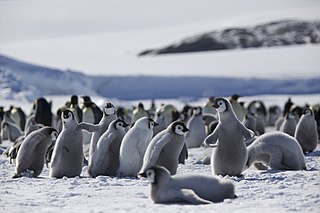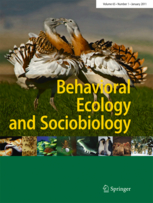This page is based on this
Wikipedia article Text is available under the
CC BY-SA 4.0 license; additional terms may apply.
Images, videos and audio are available under their respective licenses.
Industrial ecology (IE) is the study of material and energy flows through industrial systems. The global industrial economy can be modelled as a network of industrial processes that extract resources from the Earth and transform those resources into commodities which can be bought and sold to meet the needs of humanity. Industrial ecology seeks to quantify the material flows and document the industrial processes that make modern society function. Industrial ecologists are often concerned with the impacts that industrial activities have on the environment, with use of the planet's supply of natural resources, and with problems of waste disposal. Industrial ecology is a young but growing multidisciplinary field of research which combines aspects of engineering, economics, sociology, toxicology and the natural sciences.

Foraging is searching for wild food resources. It affects an animal's fitness because it plays an important role in an animal's ability to survive and reproduce. Foraging theory is a branch of behavioral ecology that studies the foraging behavior of animals in response to the environment where the animal lives.
The Human Behavior and Evolution Society, or HBES, is an interdisciplinary, international society of researchers, primarily from the social and biological sciences, who use modern evolutionary theory to help to discover human nature — including evolved emotional, cognitive and sexual adaptations. It was founded on October 29, 1988 at the University of Michigan.

Evolution and Human Behavior is a peer-reviewed academic journal covering research in which evolutionary perspectives are brought to bear on the study of human behavior. It is primarily a scientific journal, but articles from scholars in the humanities are also published. Papers reporting on theoretical and empirical work on other species may be included if their relevance to the human animal is apparent. The journal is published by Elsevier on behalf of the Human Behavior and Evolution Society.

Evolutionary physiology is the study of physiological evolution, which is to say, the manner in which the functional characteristics of individuals in a population of organisms have responded to selection across multiple generations during the history of the population.
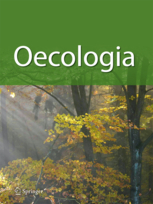
Oecologia is an international peer-reviewed English-language journal published by Springer since 1968. The journal publishes original research in a range of topics related to plant and animal ecology.
The Journal of Mammalogy is the flagship publication of the American Society of Mammalogists. Both the society and the journal were founded in 1919. The peer-reviewed journal publishes papers about mammals throughout the world and their conservation. Papers may be on all aspects of the biology of mammals, including ecology, genetics, conservation, behavior, systematics, morphology, and physiology.
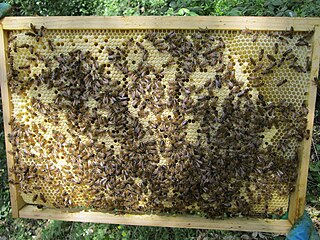
Eusociality, the highest level of organization of sociality, is defined by the following characteristics: cooperative brood care, overlapping generations within a colony of adults, and a division of labor into reproductive and non-reproductive groups. The division of labor creates specialized behavioral groups within an animal society which are sometimes called castes. Eusociality is distinguished from all other social systems because individuals of at least one caste usually lose the ability to perform at least one behavior characteristic of individuals in another caste.

Deep ecology is an ecological and environmental philosophy promoting the inherent worth of living beings regardless of their instrumental utility to human needs, plus a restructuring of modern human societies in accordance with such ideas.

Molecular Ecology is a twice monthly scientific journal covering investigations that use molecular genetic techniques to address questions in ecology, evolution, behavior, and conservation. Molecular Ecology is published by Wiley-Blackwell.
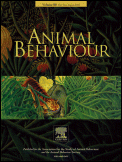
Animal Behaviour is a double-blind peer-reviewed scientific journal established in 1953 as The British Journal of Animal Behaviour, before obtaining its current title in 1958. It is published monthly by Elsevier for the Association for the Study of Animal Behaviour in collaboration with the Animal Behavior Society. It covers all aspects of ethology, including behavioural ecology, evolution of behaviour, sociobiology, ethology, behavioural physiology, population biology, and navigation and migration.

Pallas's squirrel, also known as the red-bellied tree squirrel, is a species of squirrel native to Greater China, India, and Southeast Asia.
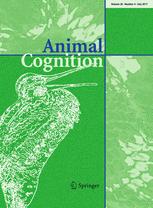
Animal Cognition is a peer-reviewed scientific journal published by Springer Science+Business Media. It covers research in ethology, behavioral ecology, animal behavior, cognitive sciences, and all aspects of human and animal cognition. According to the Journal Citation Reports, the journal has a 2017 impact factor of 2.805.
Queer ecology is a broad interdisciplinary subject within the environmental humanities most noticeably combining the fields of queer theory and ecology. Through a number of various methods, queer ecology generally aims to deconstruct heterosexist notions that define the relationship between sexuality and nature.
